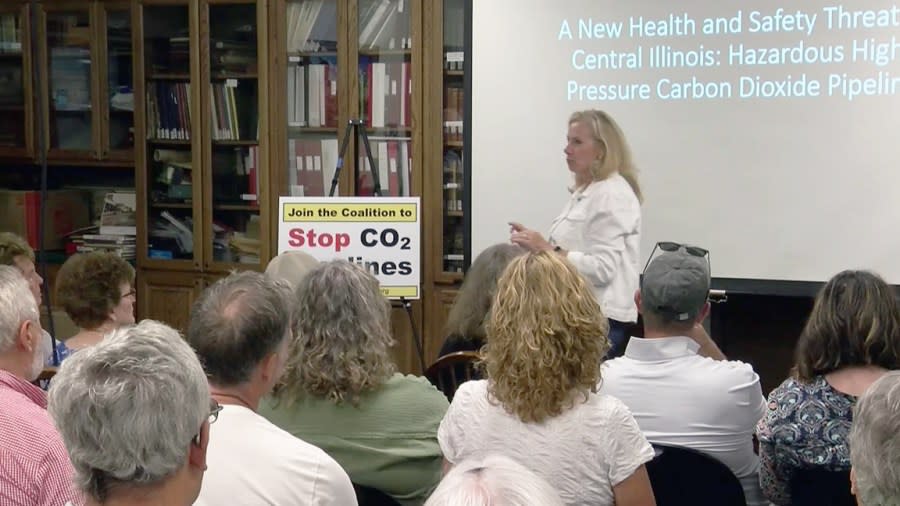CO2 pipeline forum set for Port Byron
A discussion about a CO2 pipeline will be held Wednesday, April 3, in Port Byron, according to a news release.
“What You Need to Know – Updates on Carbon Capture & Sequestration/CO2 Pipelines; Efforts in Springfield -What We Can Do Right Now” will be presented by Central Illinois Healthy Community Alliance and the Coalition to Stop CO2 Pipelines at 6 p.m. Wednesday, April 3, at River Valley District Library, 214 S. Main St., Port Byron, in the second-floor meeting room. An elevator is available.

The discussion will focus on major issues for Illinois citizens regarding carbon capture and sequestration (CCS). Wolf Carbon Solutions intends to refile an application with the Illinois Commerce Commission for a carbon dioxide (CO2) pipeline planned to cross the Mississippi River north of Port Byron, continuing southeast through Rock Island County into Henry County and further south, the release says.
“Just as with carbon dioxide pipelines, there are significant regulatory gaps at both the Federal and State levels concerning CCS and how this technology would impact property owners and groundwater resources including a significant lack of knowledge about how to stop CO2 sequestered underground from leaking,” according to the release.
Carbon dioxide at high levels in the air is toxic to the body and long-term health impacts can result. The U.S. Pipeline Hazardous Materials and Safety Administration is working on updated CO2 pipeline standards based on concerns from a 2020 CO2 pipeline rupture a mile from Satartia, Mississippi, the release says.
According to the release, “This community was not included in the company modeling for being at any risk. However, 200 people were evacuated and 45 went for hospital emergency treatment. Some individuals have lingering health issues from being in the CO2 plume area. High-pressure carbon dioxide pipelines are much more hazardous than oil or methane (natural gas) pipelines partly because of the much higher pressure in the pipeline.”
Other issues, including land impacts, and legislative efforts in Springfield, will be discussed at this free public information meeting.
For the latest news, weather, sports, and streaming video, head to WHBF - OurQuadCities.com.

